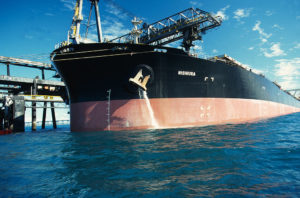In a Major Environmental Law Clinic Victory, the Second Circuit Orders EPA to Rewrite Rules on Ballast Water Discharges
The Environmental Law Clinic prevailed against the U.S. Environmental Protection Agency (EPA) in the Second Circuit Court of Appeals last week. In a unanimous decision, the Court held that the EPA’s nationwide permit governing ship ballast water discharges was too lenient. This victory comes after the Clinic’s long battle and multiple lawsuits with the EPA over how invasive species should be dealt with under the Clean Water Act.
Environmental groups – including Clinic clients Northwest Environmental Advocates and Center for Biological Diversity – alleged that the EPA’s 2013 “General Vessel Permit” governing the discharge and treatment of ballast water was inadequate to curb the spread of aquatic invasive species like the zebra and quagga mussels that have devastated the Great Lakes and have now spread to the West Coast through ship discharges. The Court agreed, holding that the EPA’s General Vessel Permit did not meet the technology and water quality requirements of the Clean Water Act. This determination was due in part to the EPA’s failure to consider available dockside treatment technology that would effectively eliminate the spread of invasive species. The Court also ruled that ships that sail exclusively within the Great Lakes should be subject to some of the same ballast requirements as ocean-going vessels.

Ballast water helps ships to balance their cargo loads as they move from port to port. But it is also the number one source of aquatic invasive species: when a ship takes in ballast water, it routinely picks up organisms, which are then discharged at a distant port where they can wreak havoc on native species and ecosystems, as well as clogging water and power plant intake pipes. As the Court noted, an estimated “10,000 marine species each day hitch rides around the globe in the ballast water of cargo ships,” costing the American economy billions of dollars annually.
Clinic student William Cooper (J.D. ’14) helped support Clinic Attorneys Deborah Sivas and Matt Sanders in this case. Read the Second Circuit Opinion here, and check out these articles for more news on the ruling.
